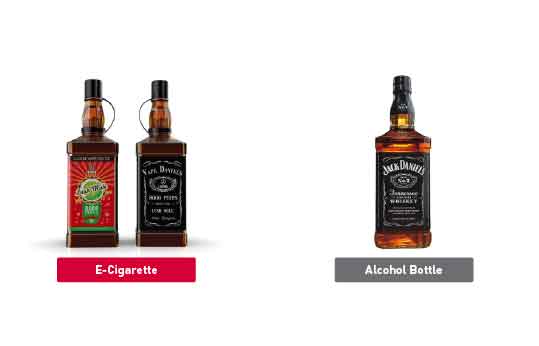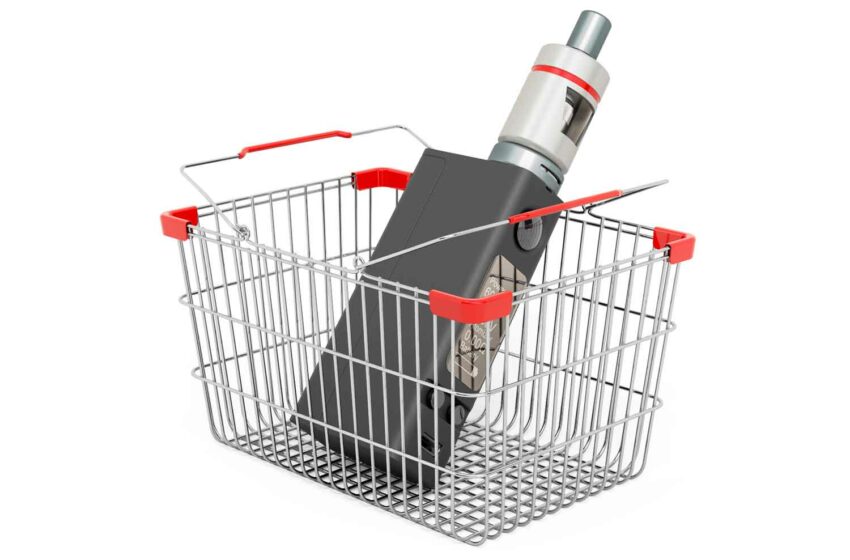The illicit e-cigarette market is soaring. Illicit products are estimated to account for more than 60 percent of the $8.3 billion U.S. vaping industry. Statista expects the U.S. electronic nicotine-delivery system (ENDS) market to grow at a compound annual growth rate of 3.93 percent from 2023 to 2028. If the illicit market continues to go unchecked, however, companies that market legal vaping products fear many consumers will simply switch back to combustible products.
“It is very much worth noting that this rapid apparent substitution is happening in an environment where half the vapor market is illicit; the FDA [U.S Food and Drug Administration] has hugely hampered vaping products making it onto the legal market, and consumers are hugely misled on relative risks,” said David Sweanor, an adjunct law professor at the University of Ottawa and a longtime tobacco harm reduction advocate. “As with other markets seeing similarly historic drops in cigarette use as alternative sales soar, it raises the question of just how rapidly cigarette sales could fall if policies were aimed at facilitating that rather than doing things to stymie it.”
Altria, parent to Njoy, a leading brand of legal vaping products in the U.S., according to Nielsen, told investors during a recent conference call that the current state of the market is “intolerable” for both legitimate manufacturers and consumers. Altria CEO Billy Gifford said the regulated market is being overrun by illegal flavored disposable products manufactured and distributed by companies violating the rules and guidance laid out by the FDA. He said that regulation not enforced is indistinguishable from no regulation at all.
“Illegal e-vapor products circumvent the actions of regulators, responsible manufacturers and retailers by evading scientific review, quality manufacturing controls, marketing oversight and legal aids or purchase restrictions. Despite recent actions by the FDA, enforcement has been inadequate and ineffective,” explained Gifford. “We believe the FDA has good tools necessary to bring order to the market. For our part, we are actively engaged with regulators, state and federal lawmakers, and trade partners and other stakeholders to build awareness of these serious issues and drive marketplace enforcement.”
According to Gifford, the lack of enforcement has forced Altria to take a “targeted but necessary action.” The company filed a lawsuit in the District Court for the Central District of California against 34 organizations. Njoy alleges that the defendants are manufacturing, marketing, distributing, selling and/or marketing their flavored disposable ENDS unlawfully for three primary reasons:
- They are not authorized pursuant to FDA marketing granted orders as part of the premarket tobacco product application process.
- California bans the retail sale of flavored ENDS.
- The defendants do not comply with the Prevent All Cigarette Trafficking Act’s delivery sale age verification, registration and filing, record keeping, tax payment and labeling requirements.
Altria is asking for the court to provide appropriate restitution for harm suffered by Njoy due to the defendants’ unfair competition.
“We want to protect harm reduction and the opportunity for the 30 million smokers in the U.S.,” said Gifford. “We really need to have enforcement where the smokers can make informed choices as they are moving across categories. I think that there’s an underlying positive is that we see adult smokers moving over, so they’re ready to have potentially reduced harm products. We just need them to be regulated and based on science to be in the marketplace.”
Sal Mancuso, Altria’s chief financial officer, said that traditional cigarette volumes continued to decline in the third quarter of 2023. He said that the decline is impacted by the number of illegal products on the market; however, because illicit products are largely distributed through nontraditional untracked channels, the company has had to refine its ability to estimate the illicit product impacts on the legal vaping industry.
“With the information we have today, we believe that there is more cross-category movement than previously assumed. And we now estimate that growth of illegal flavor[ed] disposable e-vapor products contributed to industry, cigarette industry declines in the range of 1.5 percent to 2.5 percent and over the last 12 months,” said Mancuso. “We will continue to monitor this dynamic trend and are actively pursuing better data sources to enhance our estimates in this space.”






















